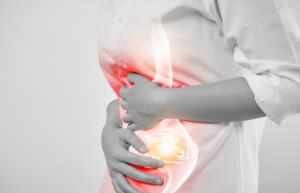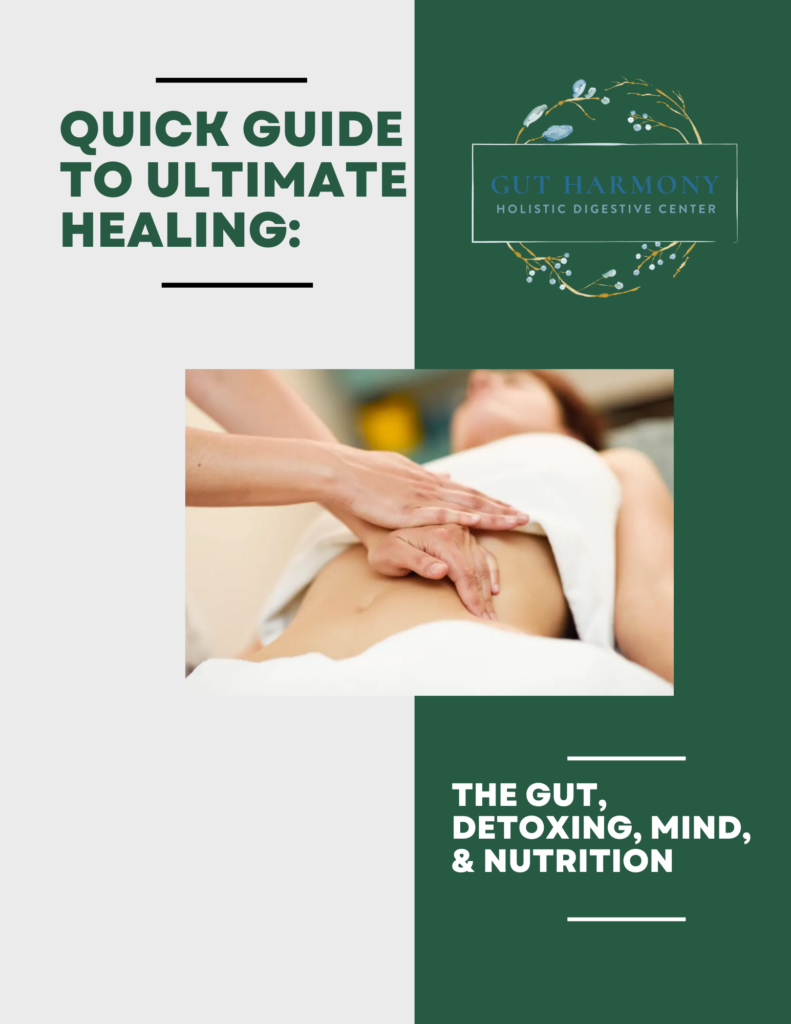For people living with reflux and indigestion issues, it’s hard to see the value of stomach acid. After all, this acid entering the esophagus is what can make life so uncomfortable. Acid blockers, or proton pump inhibitors (PPIs), are often used in treating reflux. These medications are among the top ten most prescribed drugs worldwide, with a whopping $14 billion in annual sales. PPIs work by completely shutting down the acid production in your stomach. Sounds effective, right? Well, it’s not that simple.
The Importance Of Stomach Acid
While PPIs are excellent at reducing stomach acid, this powerful ability comes at a cost. Stomach acid plays such a central role in digestion that blocking it can lead to a cascade of digestive issues. The stomach produces this acid to activate an enzyme called pepsin, which breaks down proteins into amino acids, which your body absorbs for energy and repair. Plus, stomach acid is vital for absorbing essential nutrients like vitamin B12. Stomach acid also sends chemical signals to other digestive organs, like your pancreas, and triggers peristalsis, the wave-like muscular contractions that move food through your digestive system.
Without enough acid, you can’t properly digest food or absorb essential nutrients, especially fat-soluble vitamins. Your risk for food-borne illnesses also increases because stomach acid is one of your body’s best defenses against harmful microbes. With no acid, your stomach becomes a breeding ground for pathogens like Helicobacter pylori (H. pylori).
The Dangers of Helicobacter pylori
H. pylori is a spiral-shaped microbe that can burrow into the stomach lining and is one of the most common chronic bacterial infections in the world. While many people infected with H. pylori show no symptoms, the bacteria can wreak havoc on your digestive system by altering stomach acid levels.
When H. pylori takes hold, it causes chronic inflammation in the stomach (gastritis) and interferes with the cells responsible for producing stomach acid. In some cases, it leads to hypochlorhydria (low stomach acid) while in others, it can initially trigger excessive acid production. Over time, though, persistent infection tends to suppress acid output as the stomach lining becomes damaged. This creates an environment where digestion falters, nutrient absorption is impaired, and the body’s natural defense against pathogens weakens.
To make matters more complicated, H. pylori thrives in an altered, reduced-acid environment. It’s a perfect example of a vicious cycle: the bacterium reduces stomach acid, which then creates conditions that favor its survival and continued damage. This process not only increases the risk of ulcers but has also been linked to more serious conditions like gastric cancer if left untreated.
Treating Helicobacter pylori
Unfortunately, if H. pylori is not diagnosed, PPIs are often prescribed to manage symptoms caused by this bacterial infection, making it harder to eradicate. That’s why proper diagnosis and a targeted treatment plan, including antibiotics and sometimes short-term acid control, are essential if H. pylori is suspected. If you’re experiencing persistent digestive discomfort, nausea, bloating, or unexplained nutrient deficiencies, it’s worth getting tested for H. pylori with Gut Harmony in the Charleston area. Identifying and addressing this common infection can be a critical step in restoring healthy stomach acid levels and overall digestive function.
Less Stomach Acid Can Affect Overall Gut Health
Reducing stomach acid doesn’t just affect pathogens, it can disrupt the delicate balance of bacteria in your gut. Much like antibiotics, PPIs can lead to an overgrowth of “bad bacteria” in your upper GI tract. This shift throws off your microbiome, making it easier for harmful microbes to thrive, while your body struggles to maintain a healthy balance.
The long-term side effects of taking PPIs are significant. Incomplete digestion and nutrient malabsorption are linked to issues like bone fractures, kidney disease, and even anemia. But perhaps the most concerning side effect is the increased risk of infection. Without stomach acid, your gut loses a key line of defense, making you more susceptible to illnesses that would normally be kept in check.
“Interestingly, a large portion of those who suffer from reflux symptoms and GERD actually have low stomach acid, or hypochlorhydria,” said Dr. Shruti Paskar, ND, LMT, Gut Harmony’s Holistic Health Practitioner. “Low stomach acid leaves food poorly digested, leading to increased pressure from gas formation and undigested food particles, causing acid to reflux into the esophagus or even the larynx. The lower esophageal sphincter, or the doorway between the stomach and esophagus, also needs enough stomach acid (or a lower pH) to remain effectively closed which helps keep stomach acid where it belongs.”
Dr. Paskar continued, “An easy way to support healthy production of stomach acid is to simply take your time with meals and chew food thoroughly to stimulate the cephalic (or brain) phase of digestion. A great example of the wonderful mind-body connection!”
Control Reflux And Avoid Acid Blockers
What should you do if you’re dealing with reflux or esophagitis (inflammation of the esophagus), but you want to avoid PPIs? Here are some effective strategies to help manage symptoms and support your digestive health:
1. Eat Smaller, More Frequent Meals
Avoid overloading your stomach with large meals that can trigger reflux. Smaller meals are easier to digest and less likely to cause discomfort.
2. Stay Active
Exercise regularly to stimulate healthy digestion. Physical activity promotes peristalsis, helping food move smoothly through your digestive tract.
3. Eat Before Sunset
Your digestive system naturally slows down as the sun sets. Try to eat your last meal of the day before it gets dark to avoid nighttime reflux.
4. Mind Your Meal Timing
Make breakfast your largest meal and dinner your smallest. This allows your body ample time to digest throughout the day.
5. Spread Out High-Fiber Foods
Instead of loading up on high-fiber foods all at once, eat them throughout the day to avoid feeling overly full.
6. Limit Trigger Foods
Certain foods and drinks can slow digestion or weaken the valve between your stomach and esophagus, leading to reflux. Avoid fatty or fried foods, dairy, caffeine, chocolate, carbonated drinks, and nicotine.
7. Be Mindful of Other Triggers
Even foods like gum, spicy dishes, citrus, mint, onions, garlic, alcohol, and decaf tea can exacerbate reflux symptoms, so be cautious with your choices.
8. Drink Smart
Drink water between meals, not during them, and sip slowly to avoid feeling bloated.
9. Give Yourself Time to Digest
Finish eating at least four hours before going to bed or lying down. This gives your stomach time to process food before you rest.
10. Take a Gentle Walk After Eating
Move around a bit after meals to encourage peristalsis. A simple walk can help your digestive system stay active and prevent discomfort.
11. Choose Comfortable Clothing
Tight clothing around your waist can exacerbate reflux symptoms, so opt for outfits that allow your stomach to relax.
It’s difficult to live with reflux. Testing and evaluation with the holistic health professionals at Gut Harmony in Mt. Pleasant, SC, can help identify existing issues, including any pathogens affecting your digestion. This will allow us to formulate a holistic plan to improve your gut health and manage reflux without resorting to PPIs and the long-term risks associated with these medications. Stomach acid is crucial for your health. Protect it, and it will protect you!
To schedule an appointment, call 843-242-0646. We are easily accessible from Charleston, Summerville, Sullivan’s Island, Isle of Palms and Daniel Island.











